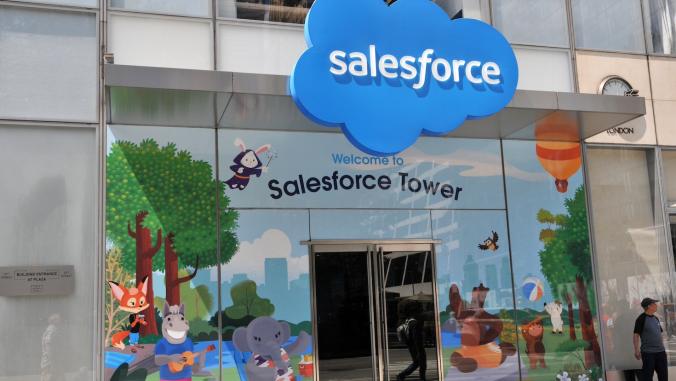State of Green Business: Business leads in renewable power
Tired of government inaction and policies that don't put renewable energy on a level playing field with fossil fuels, big business is investing in renewables anyway — and thus driving down costs.

This article is part of a series of excerpts from the 2015 State of Green Business report.
After years of purchasing renewable energy credits (RECs) to meet clean power sourcing goals, dozens of big global businesses across multiple industry sectors — from consumer products to retail to high tech — are taking matters into their own hands.
Their mission: Inspire local and national governments, along with utilities, to fast-track policies that place renewable energy alternatives on a level playing field with fossil fuels — and then let economics guide the way.'
Their motivation: lack of progress by government policy-makers and frustration with rising bills from utilities that have been slow to invest in clean power infrastructure.
“Renewable energy is common sense energy,” said Steve Howard, chief sustainability officer for IKEA Group, participating in an event during Climate WeekNew York last September. “There is no peak sun, no peak wind. We struck sun, we struck wind long before we struck oil.”
IKEA isn’t waiting around for policymakers, many of whom have been slow to figure this out. Instead, it has committed close to $1.9 billion to renewable energy technologies through 2015. For example, the retailer supports rooftop solar panels at almost 90 percent of its U.S. stores. Many of those installations happen to be the largest of their kind in their home states. Along the way, IKEA also has bought two wind farms.
Clearly, most small and midsize businesses don’t exactly have the sort of buying power that IKEA does. But the Swedish retailer is far from alone in demonstrating its serious interest in renewables through direct investments — a trend that accelerated significantly during 2014 and continues to gain momentum.
Other leaders include Adobe Systems, Apple, BMW, Coca-Cola, eBay, Google, Kohl’s, S.C. Johnson, Volkswagen and Walmart. All stand apart in supporting on-site installations of significant generating capacity, rather than relying on RECs to meet their clean power procurement targets.
Managed healthcare company Kaiser Permanente ties its investments in solar (in Hawaii and California) to a long-term plan to keep the price it pays for electricity in check. “Pursuing clean energy opportunities is not only the right thing to do for our communities, it makes good business sense,” said Rame Hemstreet, vice president of facilities operations and Kaiser’s chief energy officer, explaining his strategy.
Last fall, during Climate Week NYC, more than a dozen companies disclosed multi-year pledges to transition to 100 percent renewable power.
Their declaration:
"Accelerating the scale-up of renewable energy will help us deliver a better, healthier more sustainable world for what will soon be 9 billion people.
Renewable energy investment is also a smart business opportunity. In addition to providing clean power for a business, renewable energy investment can provide financial returns compatible with — and in some cases even higher than — other mainstream investment options."
The founding sponsors of the campaign, called RE100, were IKEA and Swiss Re. (The Climate Group and CDP are also behind the initiative.) “We decided on a 100 percent renewable power approach because as a leading provider of reinsurance and insurance, we believe that tackling climate change while meeting the energy needs of a growing and development world is an urgent matter,” said Jurg Trub, head of environmental and commodity markets for Swiss Re.
Initial supporters for the pledge included BT, Commerzbank, FIA Formula E, H&M, KPN, Mars, Nestle, Philips, Reed Elsevier, J. Safra Sarasin, and Yoox. Walmart made a similar pledge long ago. The goal is to get 100 companies on board with this idea before 2020 — although companies may take additional years to meet this target.
Why aren’t more businesses ordering up more renewable power? For one thing, it’s a pretty difficult process. Last summer, a dozen companies (the number is now 19) got together to encourage utilities to reconsider their current policies and generating mixes.
“Even though cost-effective project opportunities currently exist, with billions of kilowatt-hours still needed to meet their renewable energy goals, businesses face a variety of challenges accessing cost-effective projects on favorable terms,” the companies wrote as part of the Corporate Renewable Energy Buyers’ Principles.
Among those joining the push for better choices and procurement methods were Adobe, Sprint, eBay, Volvo, Cisco, Facebook, Walmart, Hewlett-Packard, 3M, Johnson & Johnson, Procter & Gamble, Novo Nordisk, Intel, EMC, Aditya Birla Novelis, Mars, General Motors and REI. They represent a combined demand of more than 10 million megawatt hours per year — enough power to run a million homes for a year.





